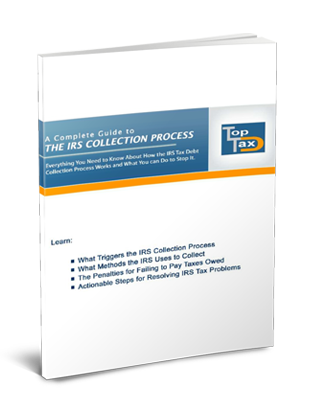Owe back taxes to the IRS and can't afford to pay the amount in full? Many people believe that the IRS will not work with taxpayers and that the only way you can get out of tax debt is to pay your debt in full. However, under the right conditions the IRS will allow you to set up an installment plan and make monthly payments on your debt.
What is an installment agreement and who is eligible?
An IRS installment agreement is a payment plan that allows taxpayers to pay off their tax debt over time in manageable monthly amounts. It's a formal arrangement between you and the IRS to settle tax debts when you can't pay the full amount owed immediately or all at once.
To be eligible, you will have to meet the following criteria:
- All of your past tax returns have been filed
- You must owe $50,000 or less in combined individual income tax, penalties, and interest (If you owe more than $50k, your payment agreement will probably be a little different and you may need to provide additional documentation.)
If you meet these requirements, you will be able to ask the IRS to set up an installment plan for you to pay off your delinquent tax debt and any associated penalties.
Our tax professionals can coach you on setting up a payment plan with the IRS. Watch Top Tax Defenders Director of Operations Priya Mishra explain more about our process.
What will it cost?
As you might expect, you will have to pay some fees to set up an installment plan with the IRS, similar to paying fees when setting up any type of loan or payment plan. Here are some of the costs you might need to pay:
- Setup Fee: The IRS typically charges a setup fee to establish an installment agreement. This fee ranges from $31 to $130 for individuals, depending on the how you will be paying your monthly installment and how long you're going to take to complete payments. Low-income taxpayers may qualify for reduced setup fees.
- Interest: The IRS charges interest on the unpaid balance of the tax debt until it's fully paid off. The interest rate is determined quarterly and is generally the federal short-term rate plus 3%. This interest accrues daily and compounds.
- Penalties: If you don't pay the full amount owed by the due date of the tax return, you may incur penalties. The most common penalty is the failure-to-pay penalty, which accrues at a rate of 0.5% of the unpaid taxes per month, up to a maximum of 25%. You may also owe a late-payment penalty. However, if you filed your return on time, the late-payment penalty rate is reduced while an installment agreement is in effect. The late payment penalty accrues at the rate of 0.25% per month, instead of up to 1% per month.
- Restructuring Fee: If you modify an existing installment agreement or reinstates a defaulted agreement, the IRS may charge a restructuring fee. For individuals, this fee is $10.
Types of IRS installment agreements
The IRS offers two main types of installment agreements: guaranteed installment agreements and streamlined installment agreements. Here's an overview of each:
-
Guaranteed Installment Agreement:
Eligibility: Taxpayers qualify for a guaranteed installment agreement if they owe $10,000 or less in combined individual income tax, penalties, and interest, and meet certain other criteria.
Requirements: To qualify, taxpayers must have filed their tax returns on time for the past five years, have not entered into an installment agreement or an offer in compromise in the previous five years, and must agree to pay off their debt within three years.
Features: Guaranteed installment agreements are automatically approved by the IRS if the taxpayer meets all the eligibility criteria. No financial disclosure or IRS approval is required.
-
Streamlined Installment Agreement:
Eligibility: Taxpayers may qualify for a streamlined installment agreement if they owe $50,000 or less in combined individual income tax, penalties, and interest.
Requirements: To qualify, taxpayers must agree to pay off the debt within six years or before the collection statute expiration date, whichever is earlier. Additionally, they must agree to comply with all filing and payment requirements while the installment agreement is in effect.
Features: Streamlined installment agreements are subject to IRS approval, but they generally do not require a detailed financial disclosure. Taxpayers may apply online, by phone, or by submitting Form 9465, and the IRS will usually approve the agreement if the proposed monthly payments meet their criteria.
In summary, guaranteed installment agreements have specific eligibility criteria and are automatically approved if the taxpayer meets those criteria. Streamlined installment agreements have slightly higher debt limits but require IRS approval, although they typically involve less paperwork and financial disclosure compared to other installment agreement options. If neither of these options work for you, there are a few other IRS installment plans and agreement options that could be a better fit.
Setting up a payment plan with the IRS means a stop to any collection phone calls, mailings, or visits from IRS revenue officers. If you make timely payments, you will not be in danger of receiving a levy or lien on your personal property. However, it is important to note that you will be paying interest on the balance of your tax debt, and the IRS will continue to assess penalties until your debt is paid in full.
To stay on your payment plan with the IRS, you must file your taxes in compliance with federal tax regulations in all future years.
If you are struggling with tax debt, and need to set up a payment plan with the IRS to pay off your debt, you need the experienced team at Top Tax Defenders on your side. Top Tax Defenders has 27 years of experience dealing with the IRS, and knows how to get you set up with an installment plan that you can afford.




